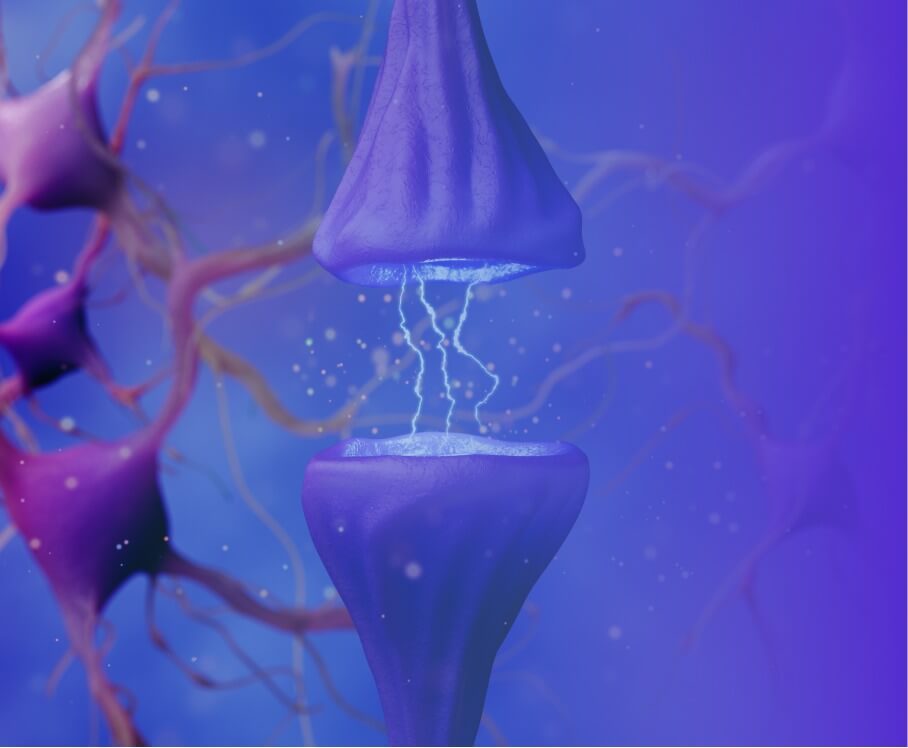Ketamine is an anesthetic medication that’s been FDA-approved for use in surgery since the 1970s. But pain relief is far from its only advantage. An ever-growing body of scientific research has proven that low-dose intravenous (IV) ketamine infusions can also have transformative effects on the brain that effectively “reboot” it to treat various mental health conditions including treatment-resistant depression, anxiety, and more.
More and more of us in modern life exist in a state of chronic stress, which depletes essential neurotransmitters in parts of the brain linked with depression and other mental health conditions. Ketamine can reverse this process and the symptoms that come with it. At low doses, ketamine relaxes the mind and gives it a break from cyclical self-defeating and limiting thoughts and stories. When IV ketamine therapy is incorporated into a larger commitment to health and wellness, patients begin to feel reacquainted with their foundation, values, and intentions. They feel a renewed sense of hope and belief in their potential.

Traditional antidepressants block the reabsorption of brain neurotransmitters like serotonin, norepinephrine, and dopamine to maintain a higher level of communication between brain cells and strengthen the circuits that regulate mood. By contrast, ketamine affects the transmission of a larger number of neurotransmitters in the brain. This multilayered effect creates ideal conditions for a “reboot,” or resetting the mind’s innate ability to heal itself.

Of note, ketamine targets glutamate, the brain’s most abundant neurotransmitter and one newly understood to be critical to healthy brain metabolism. At low doses, ketamine boosts production of glutamate and BDNF, a vital protein. When this happens, some people may have vibrant daydreams or a magical feeling of the mind separating from the body. Throughout this transcendent experience, ketamine is working hard to build new, stronger, healthier connections—or synapses—between brain cells. More synaptic communication translates to better brain health and mood regulation.
Ketamine’s ability to reach a greater breadth of neurotransmitters is exciting for its potential to revolutionize how we treat many common mental health issues. Its potential is optimized when integrated into a holistic and ongoing wellness plan, as well as delivered according to the highest standards of safety. Our environment at Soft Reboot Wellness provides all the keys to success and ensures your safety. Your preparation, open mindset, and post-therapy integration will help you achieve the greatest benefits ketamine offers. Read more about what to expect of the ketamine experience and our five pillar approach for reaping ketamine’s lasting rewards.
Ketamine has been proven safe and effective over decades of widespread use. The drug has a minimal effect on breathing, blood pressure, or heart rate, making it an ideal anesthetic. It was first FDA-approved as anesthesia in 1970. The amount given during an infusion for mental health treatment is a fraction of the dose safely used in sedation during surgery.
Recent years have seen a welcome increase in research into ketamine, among other psychedelic therapies, for its promise in healing treatment-resistant mental health conditions and other mental health concerns. Extensive and ongoing studies and patient trials have revealed ketamine’s powerful and positive effects on brain health. Ketamine’s mental health applications are still considered “off-label” uses of the drug, meaning they are emerging treatments that the FDA hasn’t yet formally approved.
While ketamine’s safety is well established, from whom and how you receive it matters. Ketamine must always be given in a monitored setting by a licensed physician or medical professional trained specifically to administer a DEA schedule III medication like ketamine. According to medical guidelines, the doctor must have Advanced Cardiovascular Life Support (ACLS) certification and meet the American Society of Anesthesiologists’ requirements for the delivery of moderate sedation. It is also recommended that the outpatient environment where these services are performed have the ability to monitor vital signs. When patients have a preexisting history of cardiovascular or respiratory issues, they may receive additional support and monitoring with oxygen therapy and continuous end-tidal CO2 monitoring during their infusions.


Dr. Sara Herman has rigorous and extensive training and experience that make her uniquely qualified to deliver highly effective, personalized ketamine therapy according to the highest standards of care and safety. She personally provides and monitors all patients’ treatments. Read more about Dr. Sara and the entire team here.
Discover what you can expect on your ketamine journey.
When you feel called to the path toward transformation, we’re here, waiting to escort you on the journey.
